Contact center of the Ukrainian Judiciary 044 207-35-46
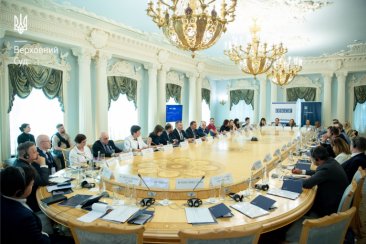
The visit took place in the framework of the Finnish OSCE Chairmanship.
President of the Supreme Court Stanislav Kravchenko expressed his deep gratitude to the OSCE for its consistent support of Ukraine, assistance in the most difficult moments and for its willingness to cooperate in the future.
"The OSCE support is not just assistance, it is a systematic strengthening of the resilience of Ukrainian society. This is an example of effective, targeted and long-term international solidarity," Stanislav Kravchenko said.
As part of his speech, the SC President also informed about the functioning of the judiciary in the context of war, its key achievements and the main challenges it faced.
Thus, according to Stanislav Kravchenko, despite the difficult working conditions caused by the war, the courts of Ukraine operate stably and efficiently, ensuring the exercise of the right of citizens to access to court. This thesis is confirmed by the statistics of the judicial system over the past year: in 2024, 5 million 300 thousand cases were pending in courts of all instances and jurisdictions, of which more than 4 million 400 thousand were considered.
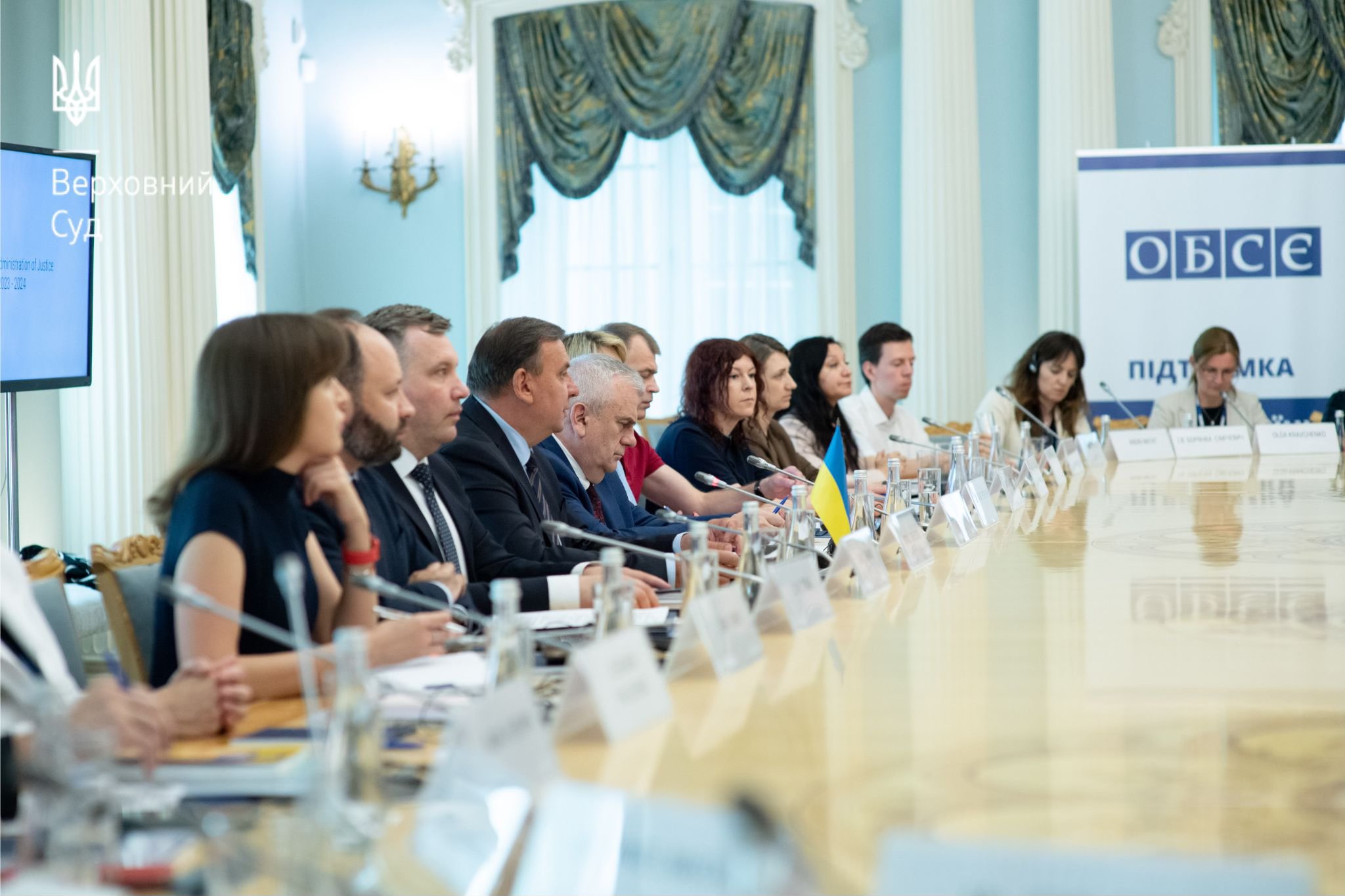
Over the past year, the Supreme Court received more than 90 thousand cases for consideration. Thus, the average workload per judge was 605 cases. At the same time, despite this amount of work, over the seven years of its operation, the Supreme Court has managed to significantly improve the state of ensuring the consistency of case law and resolve many legal problems that existed before.
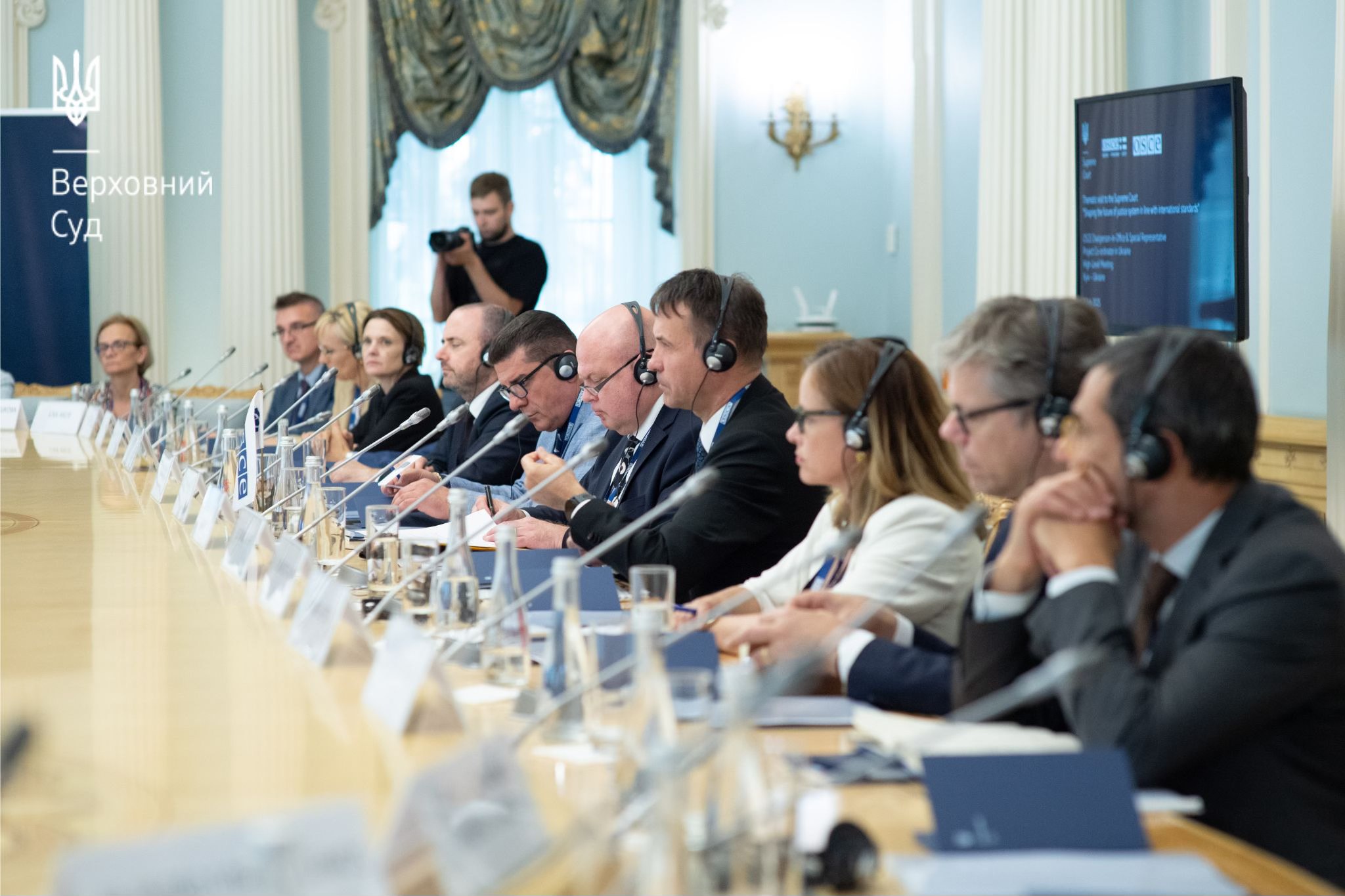
In addition, the President of the Supreme Court drew attention to the organisation of the administration of justice in relation to legal relations arising in the temporarily occupied territories, noting that over the past 10 months, due to the impossibility of conducting court proceedings in certain settlements, the territorial jurisdiction of 11 courts has been changed.
Another systemic problem is the lack of staff in the courts, which significantly complicates the work of the courts and, in some cases, threatens to ensure proper judicial control and access to justice. In addition, the process of filling vacant positions is currently quite lengthy due to the multi-stage selection procedures.
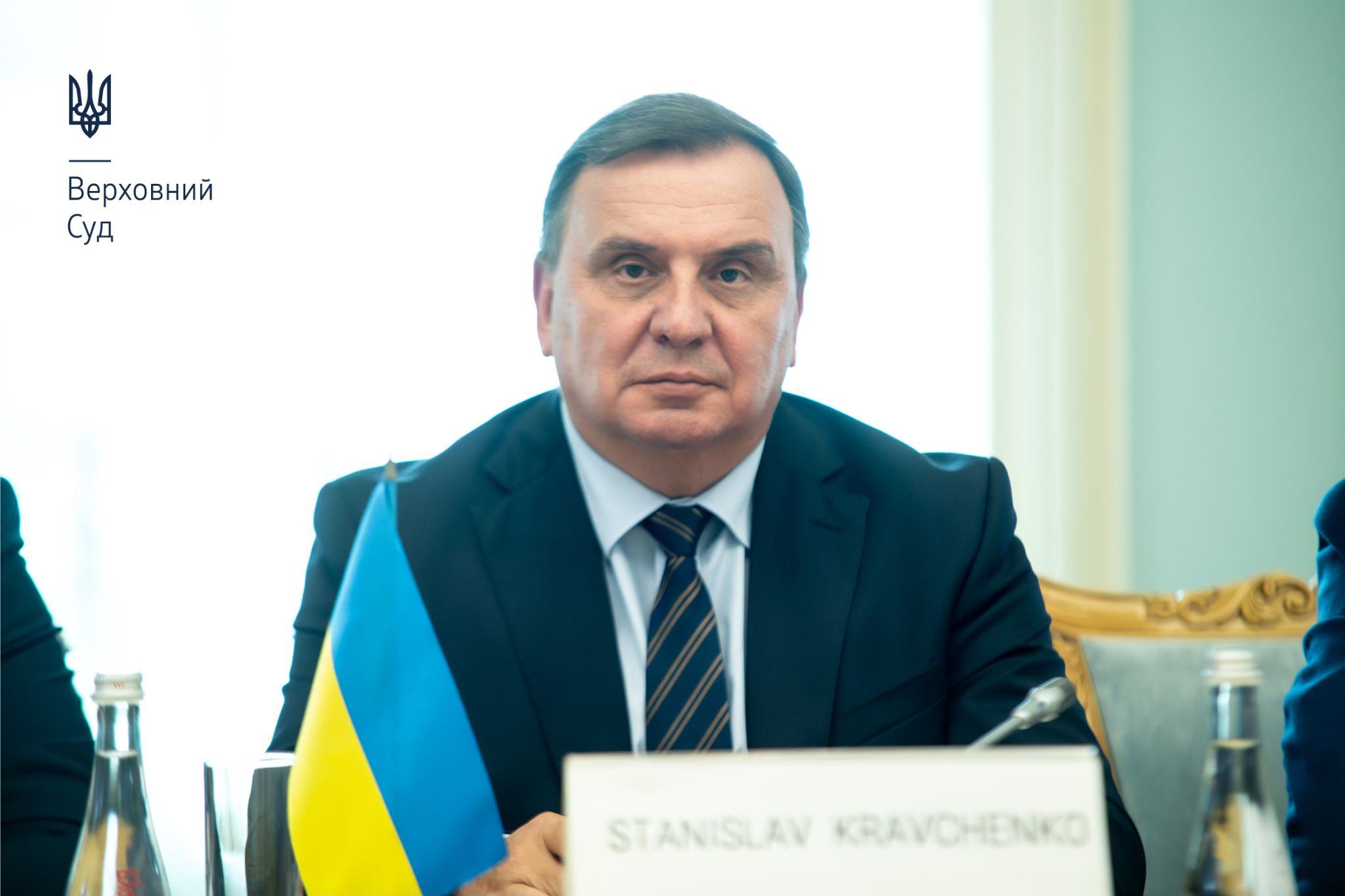
Stanislav Kravchenko also focused on the issue of judicial independence in the context of certain legislative initiatives and media coverage of the courts.
Ambassador of Finland to the OSCE Vesa Häkkinen first of all noted that this visit is a manifestation of solidarity and support for Ukraine.
"We stand with our Ukrainian partners at a moment that reflects resilience and responsibility in these difficult times for the country. The war has put the Ukrainian justice system to the test. But even under these circumstances, the Ukrainian judiciary continues not only to deliver justice and the rule of law, but also to reform and move forward," the Ambassador said.
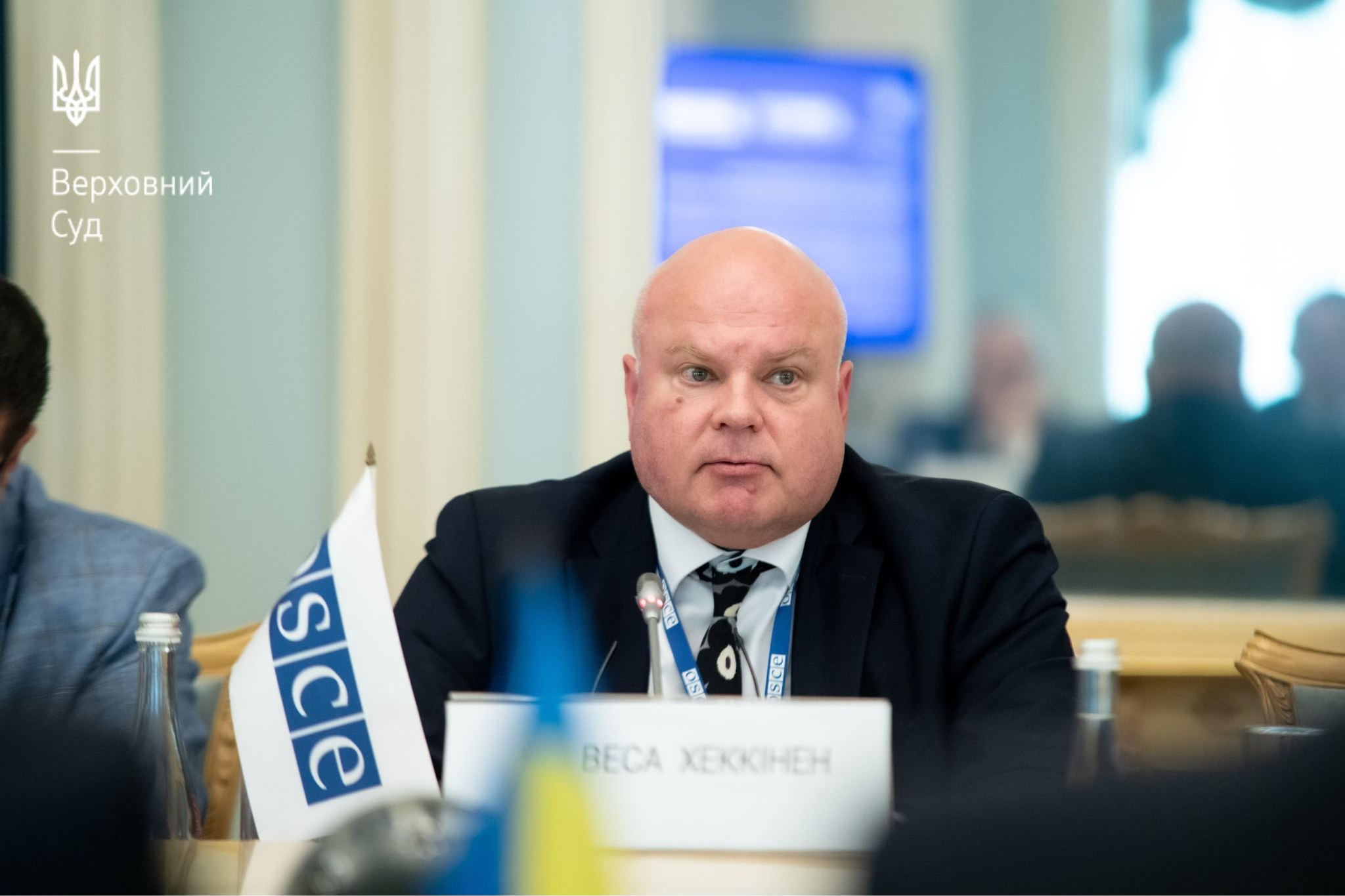
Vesa Häkkinen added that guaranteeing the rule of law is especially important in the context of the European integration process, and the judiciary must meet the highest international standards and practices, which include greater transparency, clearer communication and building structured interaction with civil society.
According to the Ambassador, international cooperation plays an equally important role, and the OSCE is ready to continue to provide the expert support and technical assistance Ukraine needs and to cooperate to achieve common goals - ensuring an independent, transparent and strictly subordinated to the rule of law judiciary.
In his speech, Acting President of the Constitutional Court of Ukraine Oleksandr Petryshyn outlined the main indicators of the CCU's activities over the past year and the results of cooperation with the OSCE, focusing on potential vectors of further cooperation.
During the meeting, a moderated discussion on strengthening the dialogue between the judiciary and civil society and human rights organisations was held, with the participation of the Vice President of the Ukrainian Bar Association Tetiana Lysovets, Executive Director of the Ukrainian Helsinki Human Rights Union Oleksandr Pavlichenko and Deputy Head of the UHHRU Analytical Department Aksana Filipishyna.
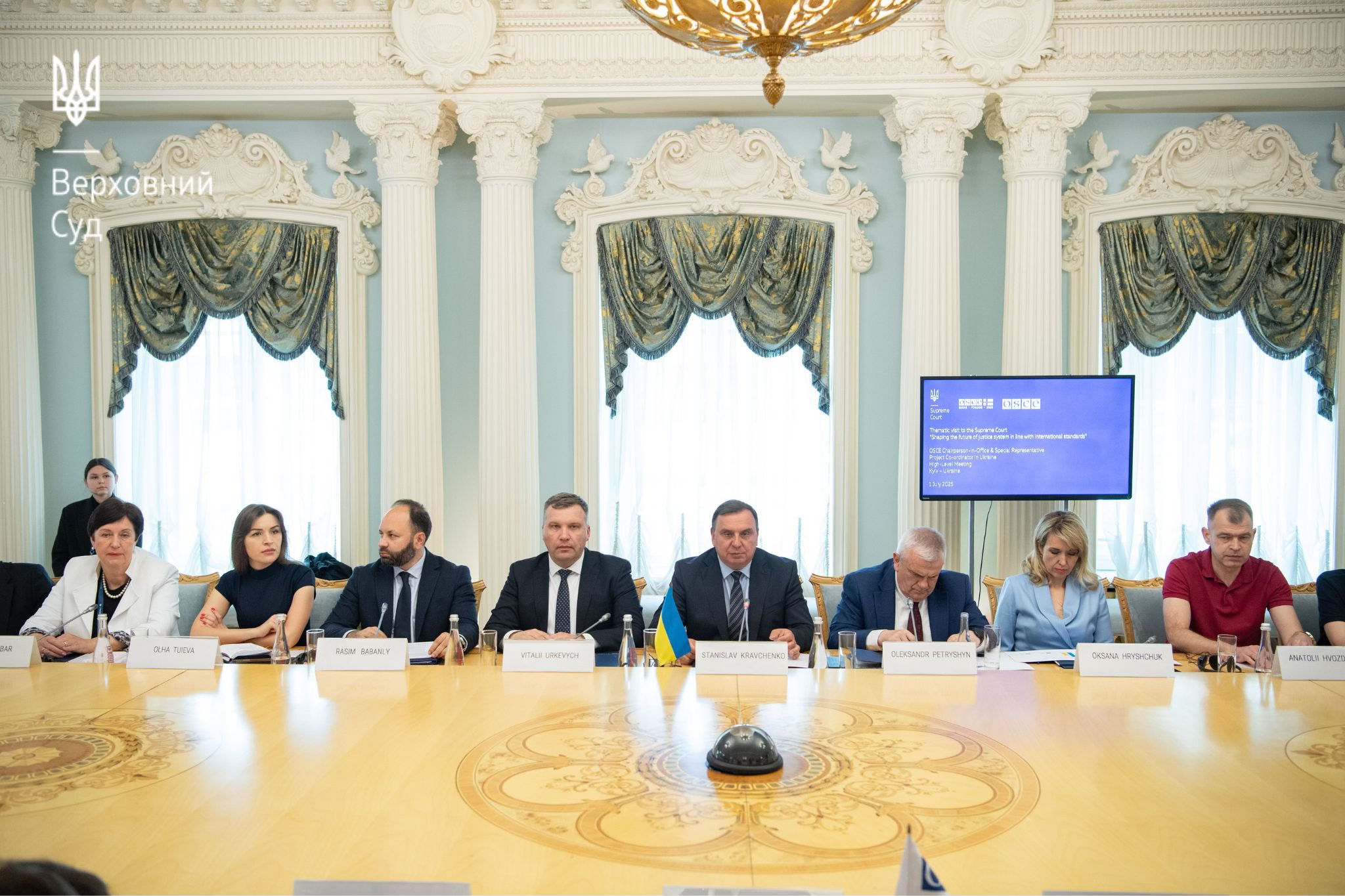
In addition, media representatives, including Natalia Mamchenko, editor-in-chief of Sudovo-Yurydychna Hazeta (Judicial and Legal Newspaper), and Viktoriia Matola, editor-in-chief of Watcher's, shared their views on building trust in the judiciary.
The meeting was also attended by Ambassador of Albania to Ukraine Ernal Filo, Ambassador of Austria to Ukraine Robert Martin Muller, Ambassador of Canada to the OSCE Veronique Pepin-Halle, Deputy Head of Mission of the Embassy of Denmark to Ukraine Lars Olaf Søvndahl Petersen, Deputy Head of Mission of the Embassy of Ireland to Ukraine Garrett O'Brien, Ambassador of Italy to the OSCE Andrea Cascone, Ambassador of Malta to Ukraine John Debono, Ambassador of Norway to the OSCE Ellen Svendsen, Ambassador of Slovenia to the OSCE Melita Župevc, Ambassador Extraordinary and Plenipotentiary of the Embassy of Slovenia to Ukraine Blaž Masle, Ambassador of Switzerland to the OSCE Raphael Nägeli, Ambassador of North Macedonia to Ukraine Antoaneta Rushkova Krcevinac, Chargé d'Affaires of the U.S. Embassy in Ukraine John Hinkel, Ambassador of Montenegro to Ukraine Borjanka Simićević, representatives of the OSCE Support Programme for Ukraine - Senior Advisor Karin Roelke, Head of Unit Natalia Stupnytska and Project Managers Olha Kravchenko and Oleksandr Vodiannikov, Judge of the Constitutional Court of Ukraine Oksana Hryshchuk, Secretary of the Grand Chamber of the Supreme Court Vitalii Urkevych and First Deputy Chief of Staff - Head of the Department for Analytical and Legal Work of the Supreme Court Rasim Babanly.